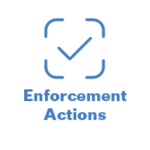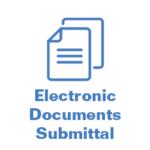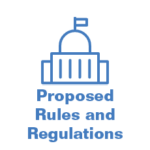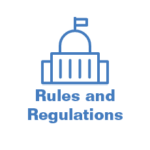- Home
- Public
- Resources
- Advanced Search
- Advisory Boards
- Careers
- District Offices
- e-Payment
- Enforcement Actions
- Meet the Director
- Mission Statement and Values
- Nondiscrimination Policy
- Outreach and Public Information
- Public Comments Online Portal
- Public Notices
- Records Requests
- Spill and Complaints
- State of the Environment
- Topics
- Divisions
- News
- Calendar
Emerging Contaminants in Drinking Water Grant
- Home
- Water Quality
- Emerging Contaminants
- Emerging Contaminants in Drinking Water Grant

The DEQ undertakes enforcement actions to preserve safe environmental conditions throughout Wyoming.
This page contains information on the enforcement actions that the Water Quality Division may undertake, as well as a record of enforcement actions that have been undertaken by WQD.
If the download box is not working below, please click here.
Electronic document submittal is available for WQD permit applications, reports, and other communications.
Visit: WDEQ Water Quality Division Downloads
You do NOT need to follow up the electronic submission with a hard copy submission unless you are specifically contacted by a WQD staff person with a request to do so.
Need to report a spill or complaint? Please visit https://deqspills.wyo.gov/home
Submitting a public comment? WQD is unable to accept public notice comments through this system. Refer to the public notice document for instructions on how to submit comments or visit https://wq.wyomingdeq.commentinput.com/comment/search.
NOTICE: All applications for water distribution systems and/or sewage collection systems that are within the Cheyenne Board of Public Utilities (BOPU) district shall be submitted to the BOPU for approval. Contact Frank Strong or Bryce Dorr at (307) 637-6460, ENGreview@cheyennebopu.org, or http://cheyennebopu.org for additional information.
The DEQ Water Quality Division accepts comments on all permits authorized under a general permit for a period of 30 days, as provided for in W.S. 35-11-801(d).
Interested persons may mail or fax comments to the main Cheyenne office. The ‘Date’ column in the table below indicates the date the authorization was posted to the website. Comments must be received before 5:00 pm on the 30th day after the authorization was posted to the website. For example, comments for an authorization posted on 10/1/18 must be received by 5:00 p.m. on 10/31/18. DEQ does not accept emailed comments.
You may sort the table by posting date or search for the type of general permit, the county where the permit was issued, the permit number, or the name of the person or company to whom the permit was issued.
If you wish to review the general permit documents, please go to the web page for each permitting program:
- Storm Water Construction, Mineral Mining, and Industrial General Permits.
- Underground Injection Control (UIC) General Permits
- Water and Wastewater Construction General Permits.
- WYPDES General Permits
If the download box is not working below, please click here.
All official Wyoming State Rules and Regulations are kept at the Wyoming Secretary of State’s Office. Click here to view all current Rules and Regulations.
Emerging Contaminants in Drinking Water Grant
- Find additional details about the grant in the drop-down menu below;
- Review the materials under the “Grant Resources” tab above;
- Contact DEQ staff identified in the “Contact” tab above to discuss potential projects; and
- Once you have determined eligibility with DEQ staff, apply for assistance using the “Grant Application” tab above.
Lindsay Patterson
Emerging Contaminants Coordinator
307-777-7158
Lindsay.Patterson@wyo.gov
Application: https://forms.gle/LPsHd5raSBbaC4LY8
The Infrastructure Investments and Jobs Act of 2021 provided funding to address PFAS and other emerging contaminants in drinking water or source water. This funding, referred to by the United States Environmental Protection Agency EPA as the Emerging Contaminants in Small or Disadvantaged Communities (EC-SDC) Grant, is awarded non-competitively to states. DEQ is administering the funding on behalf of the State of Wyoming as the Emerging Contaminants in Drinking Water Grant Program. There are no cost share or match requirements associated with the funding.
Wyoming expects to receive a total of $47,285,000 to support the Emerging Contaminants in Drinking Water Grant Program. Thus far, DEQ has been awarded $28,371,000, $18,914,0000 of which is Federal Fiscal Year 2022 and 2023 funding and $9,457,000 of which is Federal Fiscal Year 2024 funding. Grant funds must be spent within seven years of DEQ’s receipt of the funds. For Federal Fiscal Year 2022-2023 funding, funds must be spent by May 31, 2032. For Federal Fiscal Year 2024 funding, funds must be spent by July 31, 2032. Funding for other fiscal years may have later deadlines.
DEQ is planning to use the initial program funding to:
- Test for PFAS and other emerging contaminants in drinking water
- Work with stakeholders to develop a statewide strategy to address PFAS
- Conduct a statewide PFAS source water assessment and implement source water protection activities
- Provide entity-managed assistance awards to eligible entities to conduct eligible projects
- Provide state-managed assistance awards to eligible entities to conduct eligible projects
- Entity-managed assistance awards: Grant funds are awarded directly to the eligible entity to conduct eligible activities
- State-managed assistance awards: Grant funds are managed by DEQ, who works cooperatively with a contractor and the eligible entity to conduct eligible activities
- As an initial step, potential applicants should contact DEQ staff identified in the “Contact” tab above to discuss eligibility.
- Once potential applicants have confirmed eligibility, applications can be submitted using the “Grant Application” button on this webpage on a rolling basis until grant funds are expended.
- Applications will be reviewed for completeness, eligibility, and funding availability. DEQ may request additional information to complete the review.
- Once a complete application has been received, applicants will be notified whether their proposed project is eligible and has been recommended for funding.
- Entities interested in entity-managed assistance awards will be asked to develop a more detailed work plan and budget justification. Entity-managed assistance awards are finalized when a cooperative agreement between the eligible entity and DEQ has been signed by all parties.
- Entities interested in state-managed assistance awards will be asked to work cooperatively with DEQ to develop a more detailed scope of work and budget justification. Awards are finalized when a memorandum of understanding has been signed by all parties.
- PFAS
- Any contaminant on EPA’s Contaminant Candidate Lists 1, 2, 3, 4, or 5
Eligible contaminants that may be a concern in Wyoming include but are not limited to: PFAS, cyanotoxins, cyanobacteria, lithium, manganese, strontium, and disinfection byproducts.
- Community water systems
- Non-profit non-community water systems
- For profit non-community water systems interested in connecting to an existing community water system
- Private well-owners interested in connecting to an existing public water system
- Private well-owners interested in forming a new public water system
- Testing drinking water for PFAS or other emerging contaminants
- Testing source water for PFAS or other emerging contaminants
- Testing potential sources of PFAS or other emerging contaminants
- Developing or updating a source water protection plan to address emerging contaminants
- Source water protection activities to address emerging contaminants
- Planning and designing:
- Treatment alternatives, including treatment of aquifers that are source water for public water systems
- A new drinking water source
- A new public water system
- New connections to an existing public water system
- Storage projects
- Pilot testing treatment alternatives
- Public outreach, education, and engagement
- Other types of technical assistance
- Construction projects. However, entities eligible for Wyoming’s State Revolving Fund Programs should apply for assistance for construction projects through these programs.
- Workforce development
- Others – See EPA Emerging Contaminants in Small or Disadvantaged Communities (EC-SDC) grant resources.
- Projects whose primary purpose is not to address emerging contaminants
- Operations and maintenance costs
- Lead service line replacement
- Replacement of premise plumbing
- Construction or rehabilitation of dams
- Activities needed primarily for fire protection
- Activities needed primarily to serve future population growth
- Activities that have received assistance from the tribal allotment for Indian Tribes
- Costs that are unallowable (e.g., lobbying and alcoholic beverages) under 2 CFR 200 Subpart E









